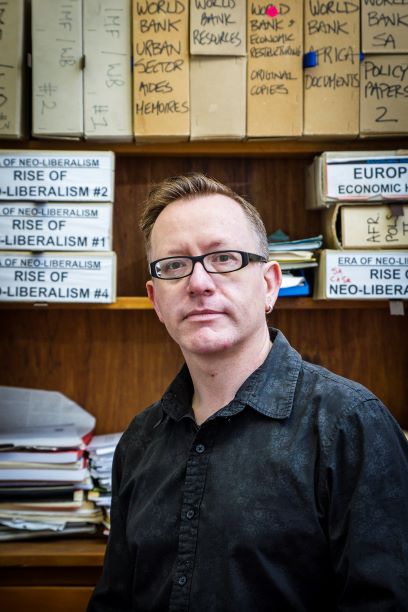
Paper:
In Beyond Decent Work: Fighting for Unions and Equality in Africa, NALSU Director Professor Lucien van der Walt examines the history and future of union movements in sub-Saharan Africa. He argues that dynamic trade unions and bottom-up worker power are essential to Africa’s rapidly growing working class. While the International Labour Organisation’s Decent Work agenda has some positive elements that can be used, it is not a desirable or feasible project in the neo-liberal epoch. Its faith in state-based social protection and advocacy of tripartism assumes states can be guardians of the working class, the peasantry and the poor. But states are centralised bodies controlled by small ruling classes. State-run welfare systems, electoral politics and union engagement in corporatism damage working class movements. The Decent Work agenda’s notion that today’s capitalism can be systematically reformed to provide decent jobs, wages, adequate welfare and meaningful social dialogue ignores how neo-liberal capitalist globalisation has torn away the ground for sustained compromises.
African labour should instead build bottom-up class-based counter-power and counter-hegemony, winning reforms from below within the current order, but aiming at a new system: common ownership, popular self-management and bottom-up planning. This requires direct action, autonomy from states – i. e., exiting electoral politics and tripartism – and alliances with peasants, the unemployed and the poor. This entails a prefigurative politics of debate, pluralism and critical thought, opposing divisions and oppression, and a democratic, internationalist practice. Concrete measures include unions taking up political and policy issues without being aligned to parties; building rank-and-file reform movements across unions; replacing union investment arms with union-backed healthcare, media and production; meeting the race-to-the-bottom with globalisation-from-below, including global standards and minimum wages; and learning from the history of Africa’s unions, which is far richer and more radical than often acknowledged. Rooted in pre-colonial class struggles by commoners, serfs and slaves, it includes stunning victories over casual labour systems, state controls, and oppressive colonial and postcolonial regimes; workers’ unity across deep divides; radical alternatives, and even workers’ control of production. We need to learn from Africa’s dramatic history of union successes and failings.
The paper was commissioned by the Friedrich-Ebert-Stiftung (FES) and served as the keynote address to the FES Conference on Trade Union Transformation in Sub-Saharan Africa held in Dar es Salaam, Tanzania, on the 29 October – 2 November 2018 [link for PDF at FES is here http://library.fes.de/pdf-files/iez/15592.pdf but I suggest you mirror at NALSU] . The version presented in Tanzania, which develops many of the arguments in more detail, can be found here [link for PDF so you can download it to put on NALSU site https://lucienvanderwalt.files.wordpress.com/2019/04/van-der-walt-what-are-we-fighting-for-possibilities-for-decent-work-unions-and-rights-in-africa-full-version-keynote-address.pdf]
